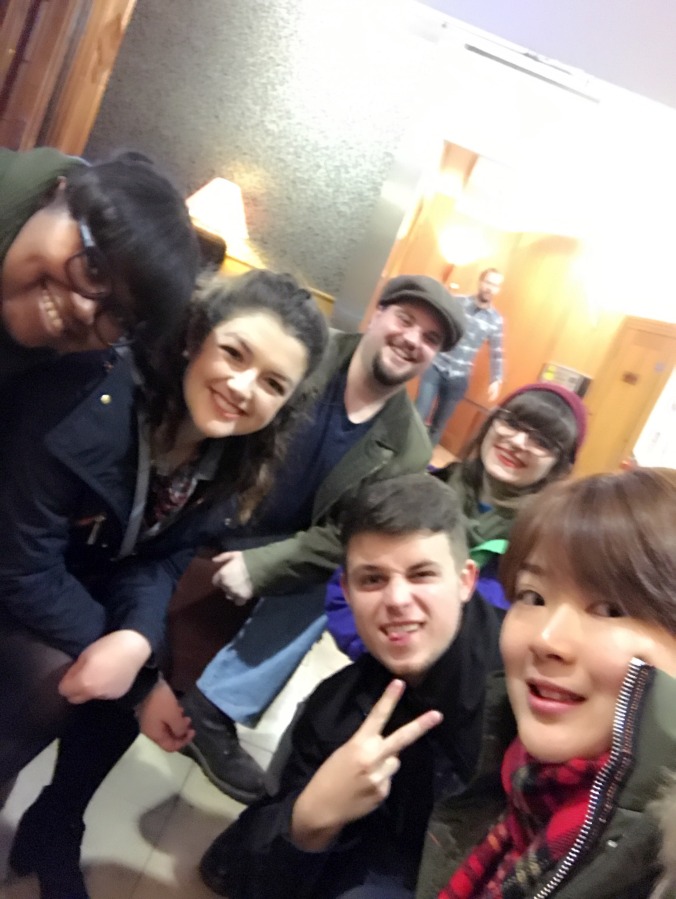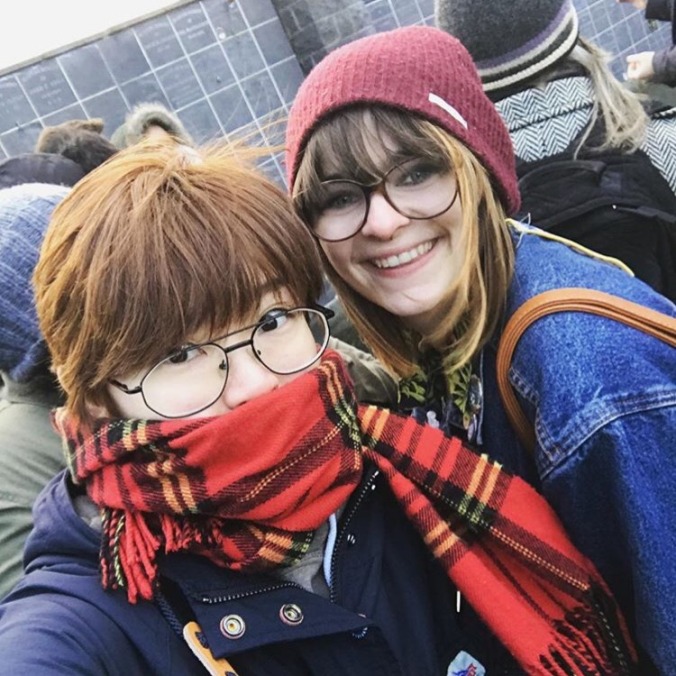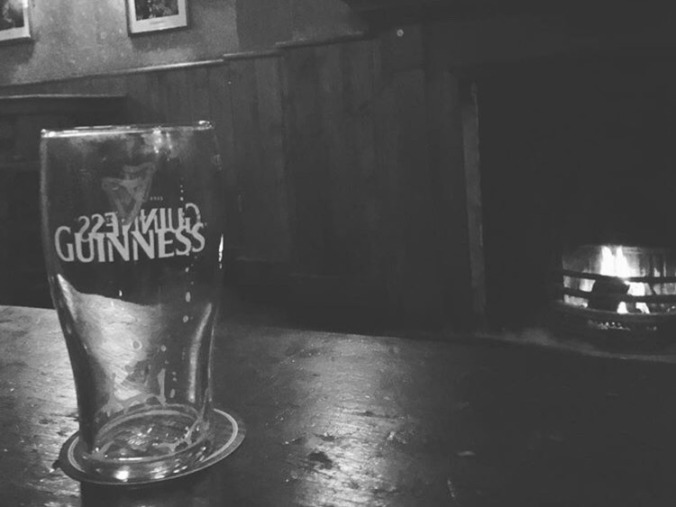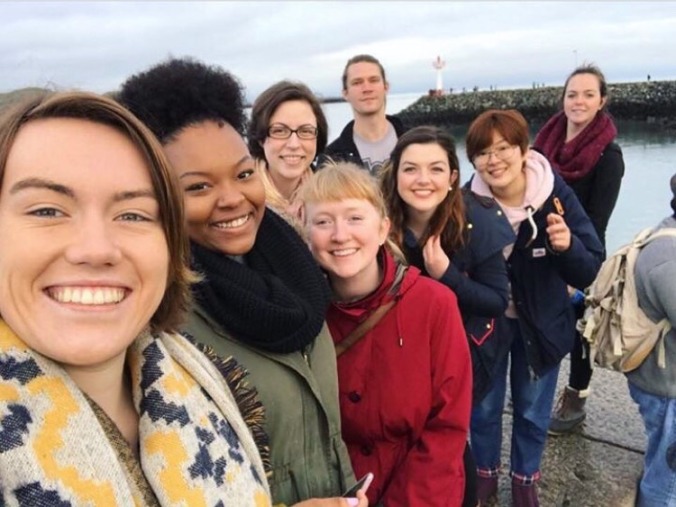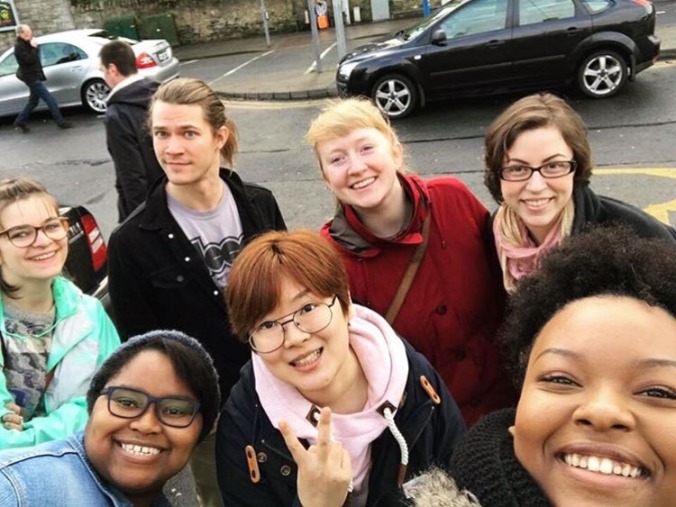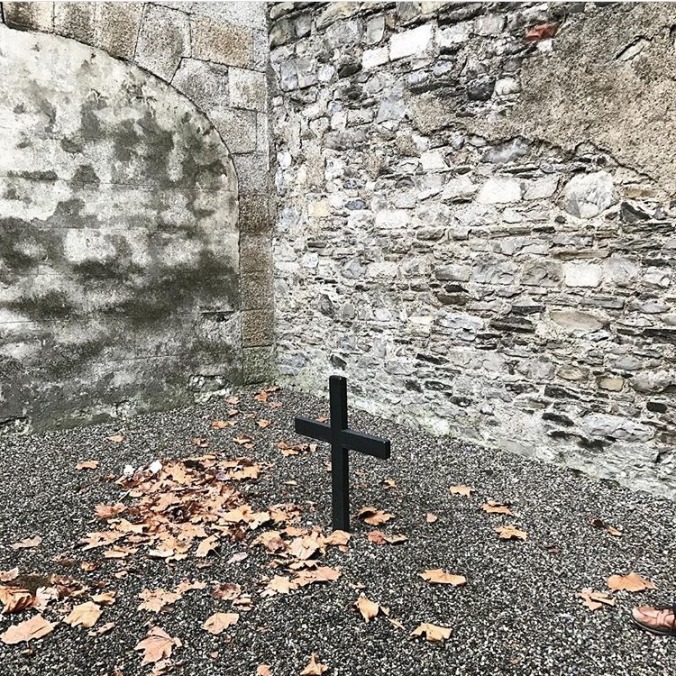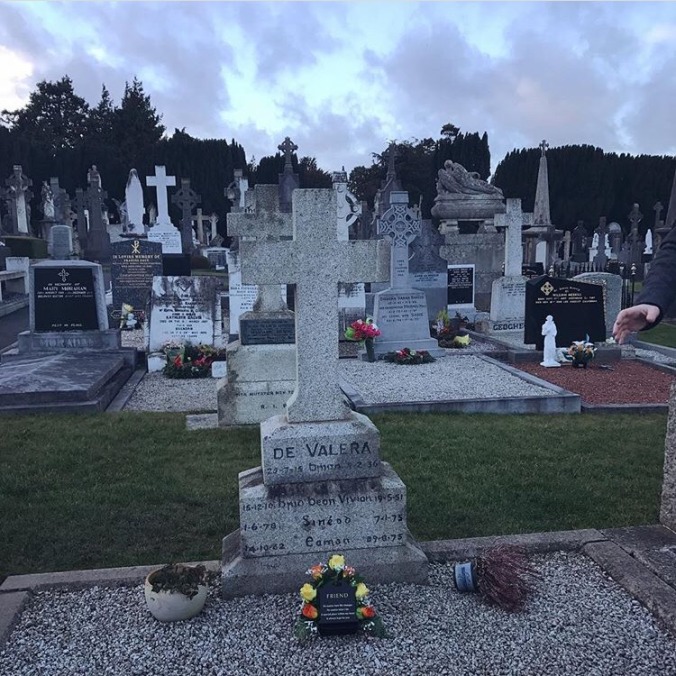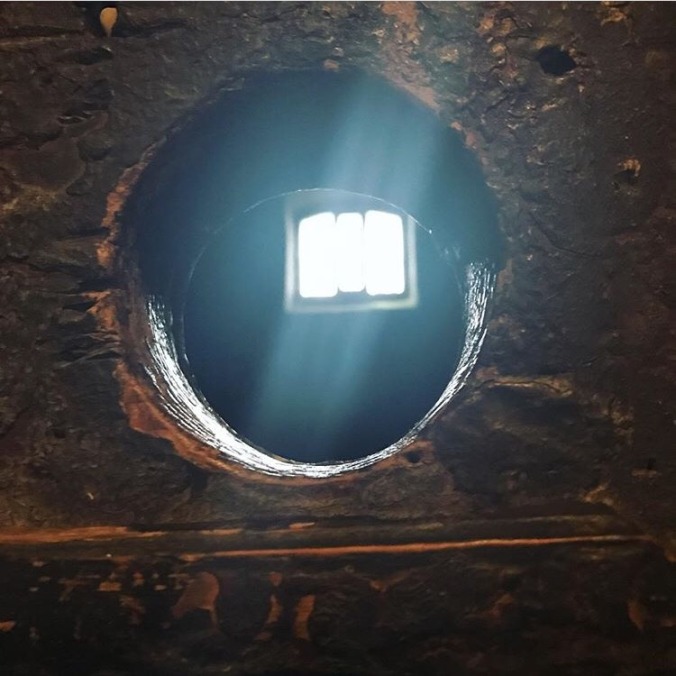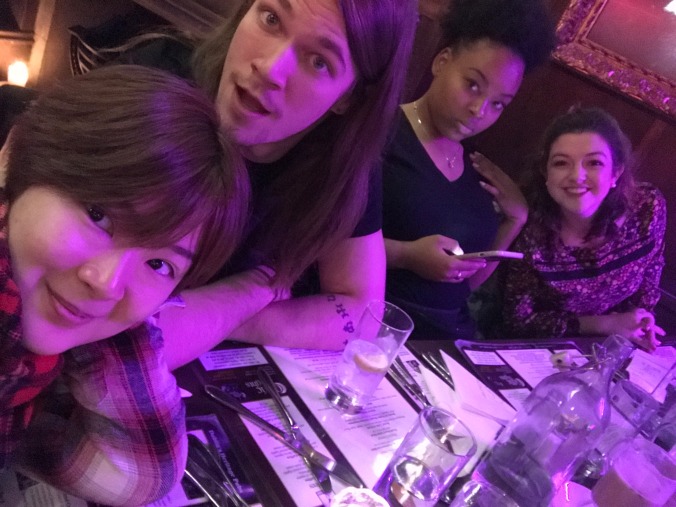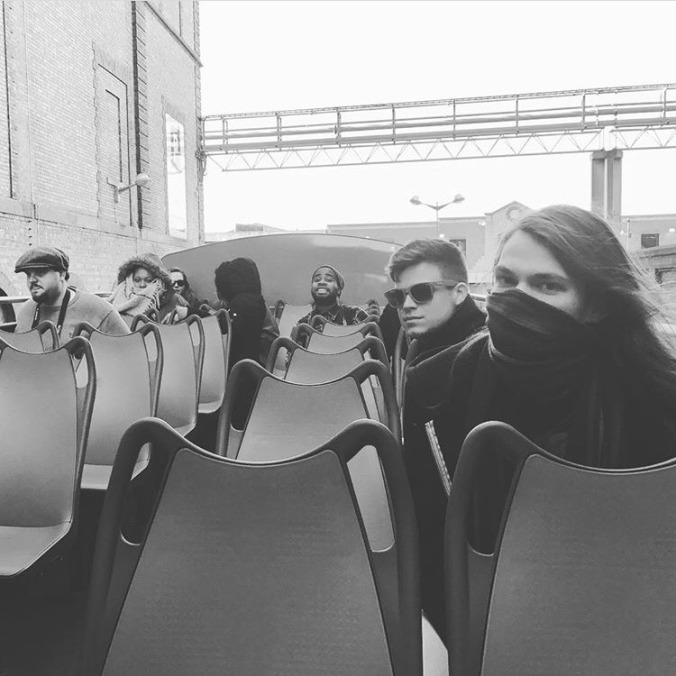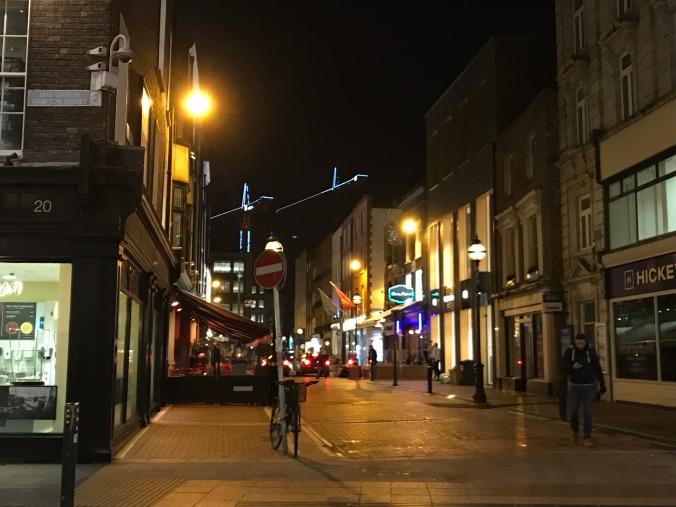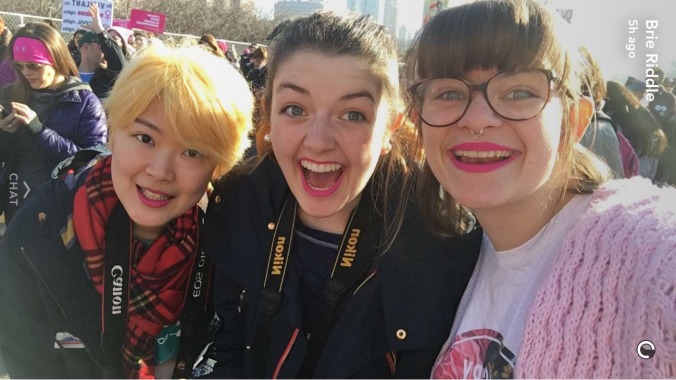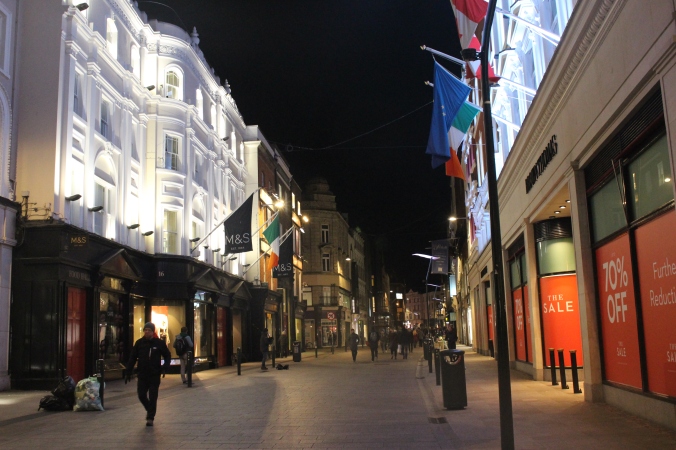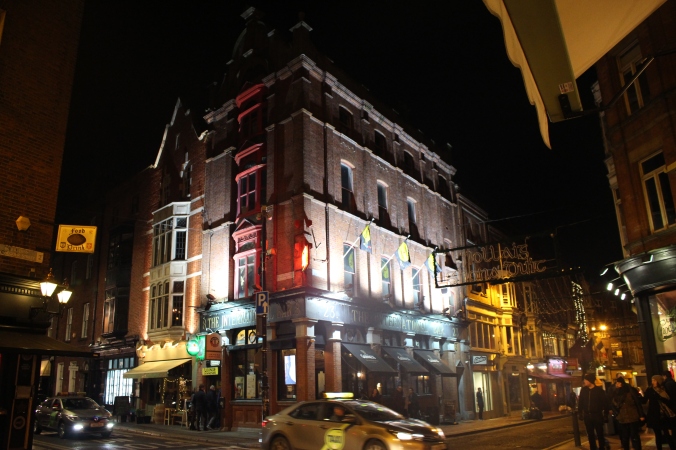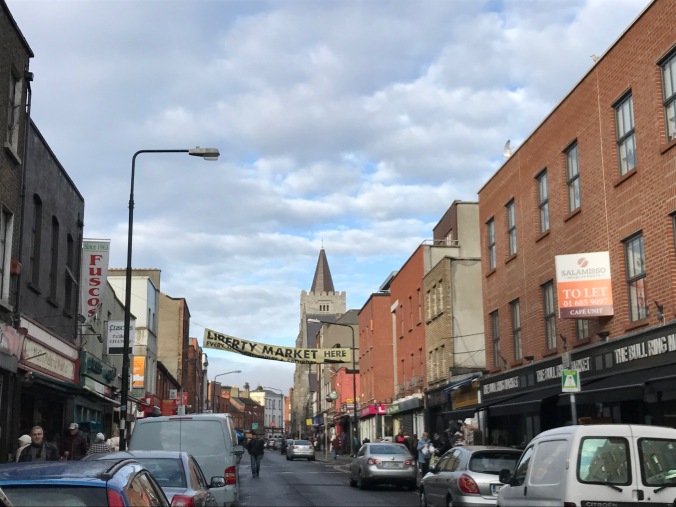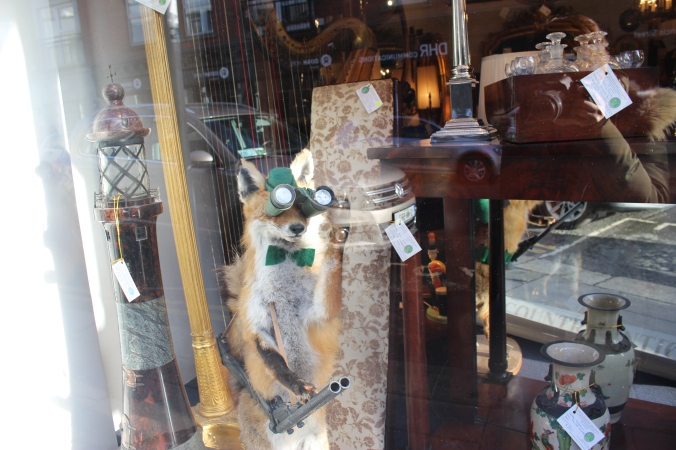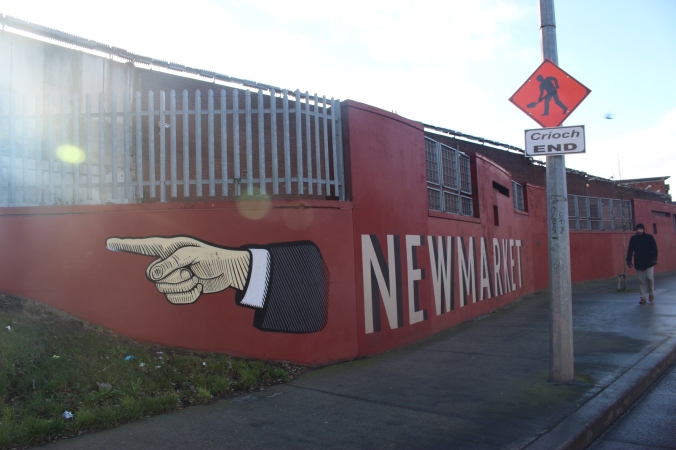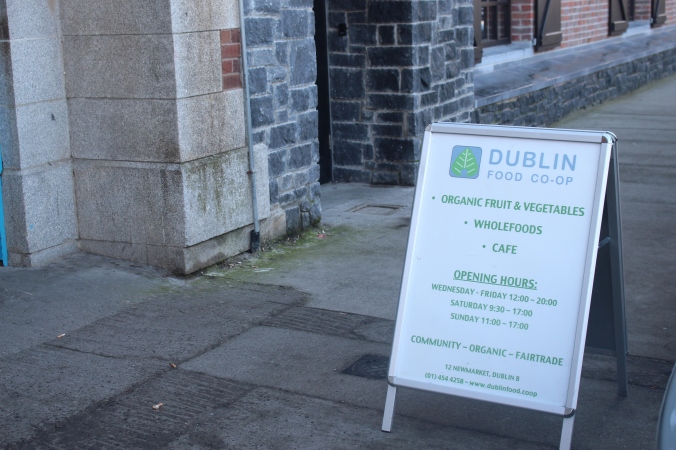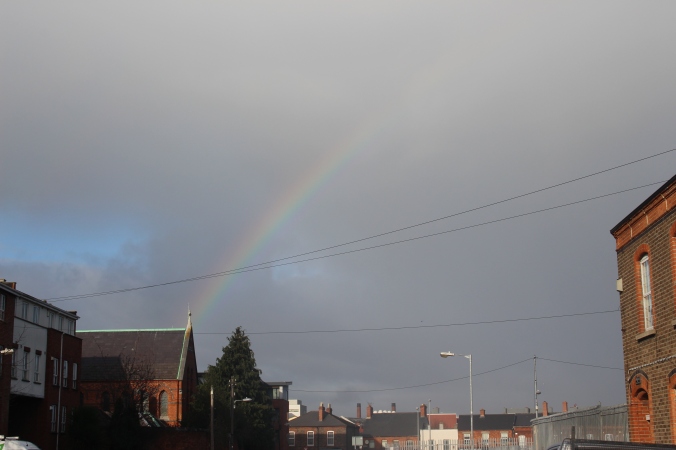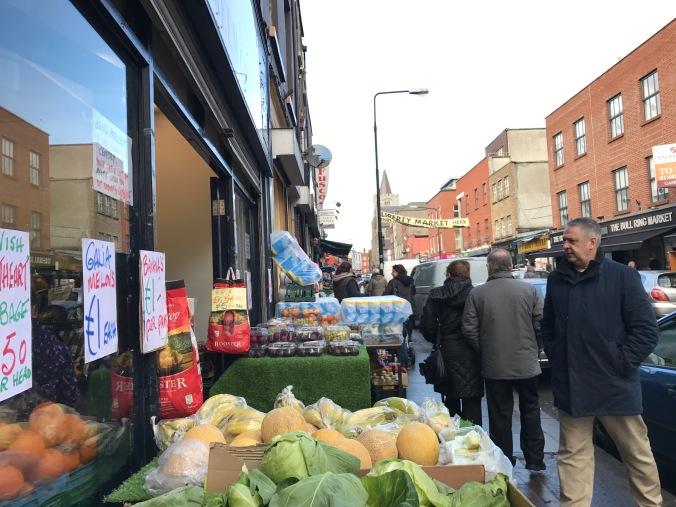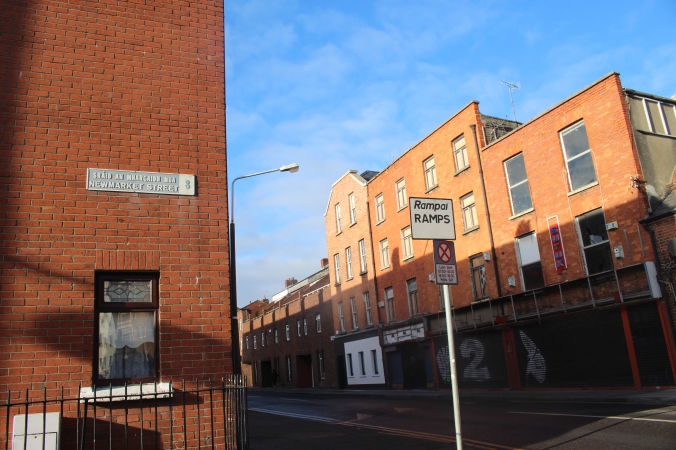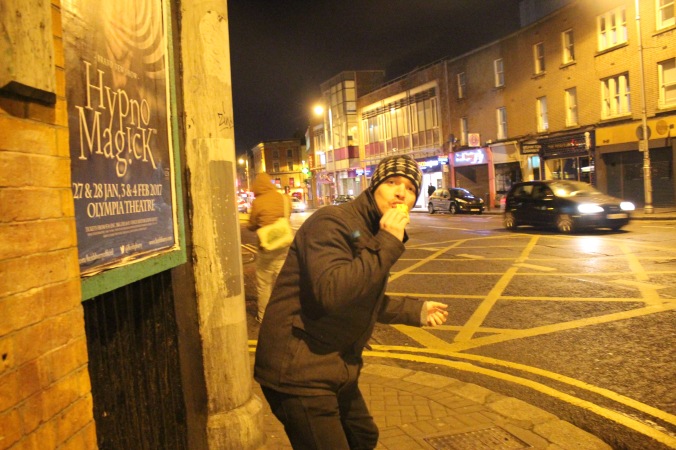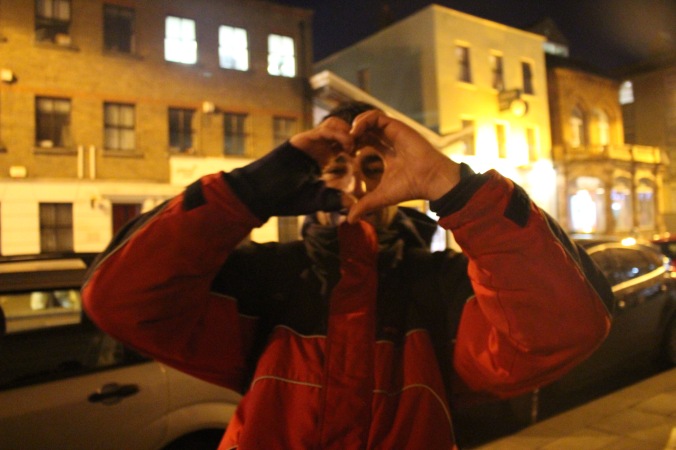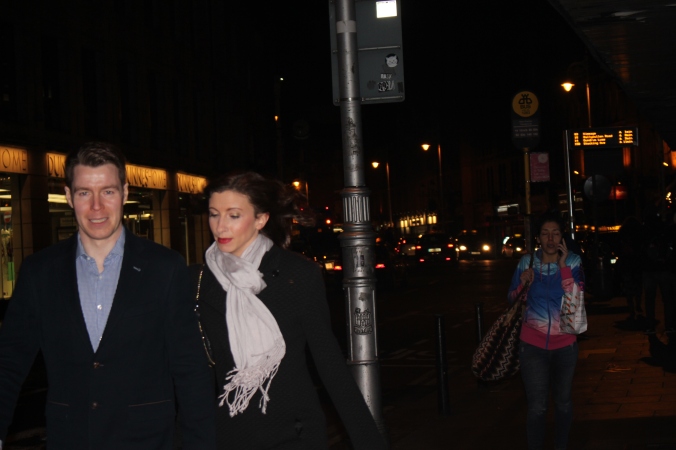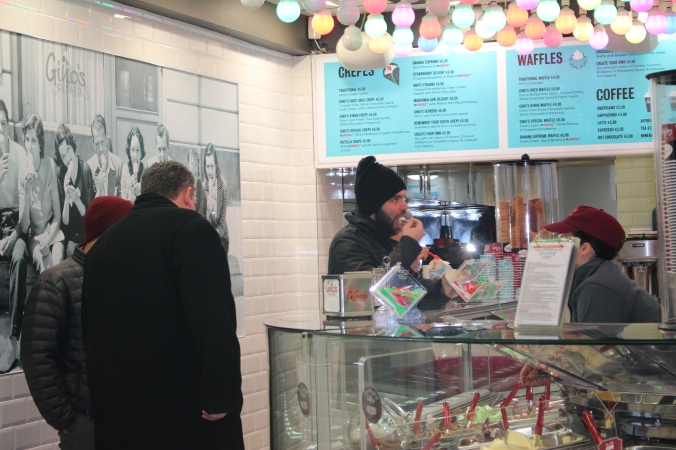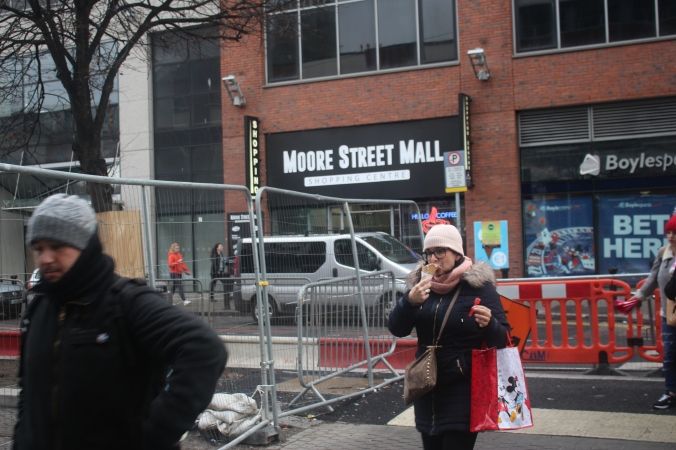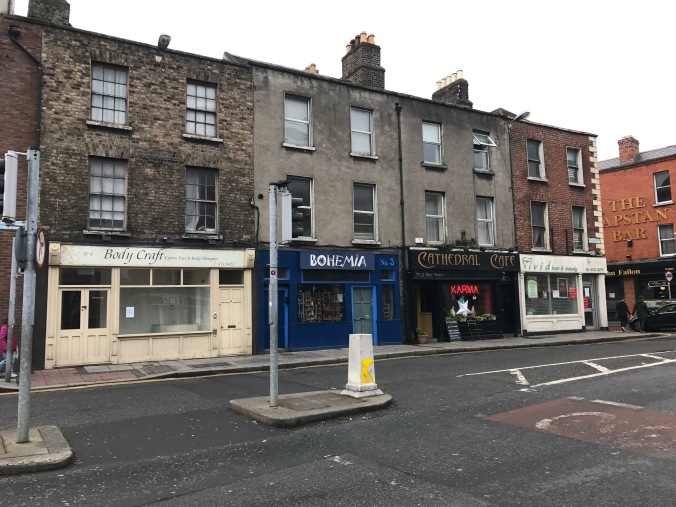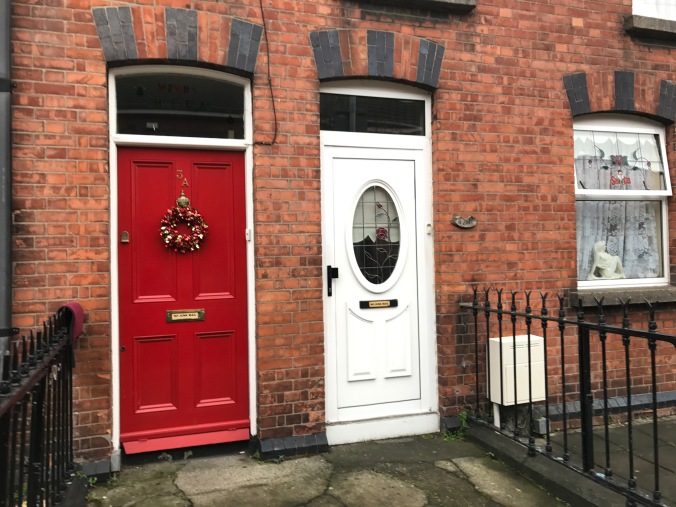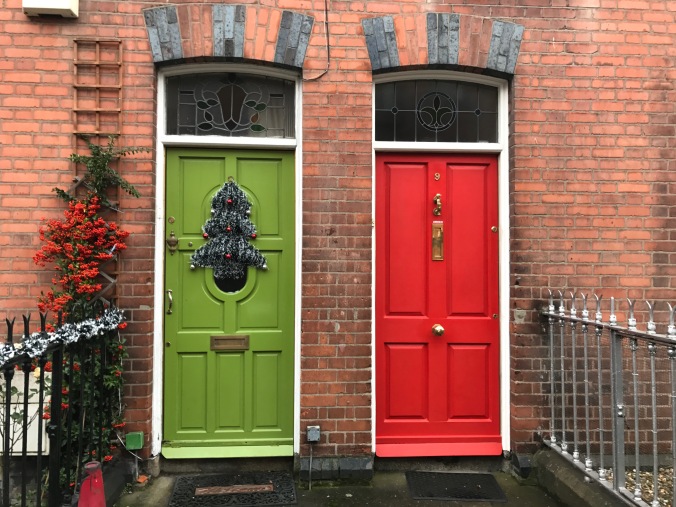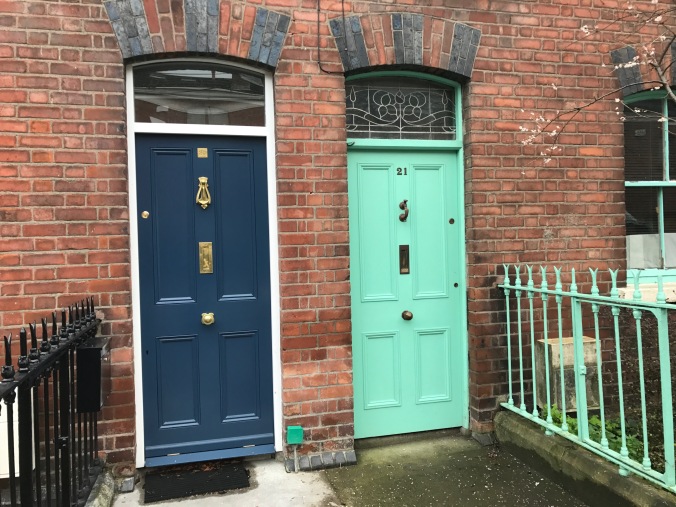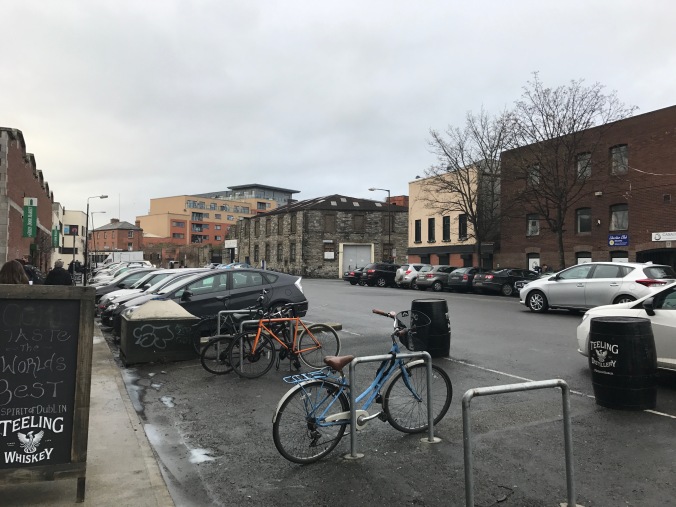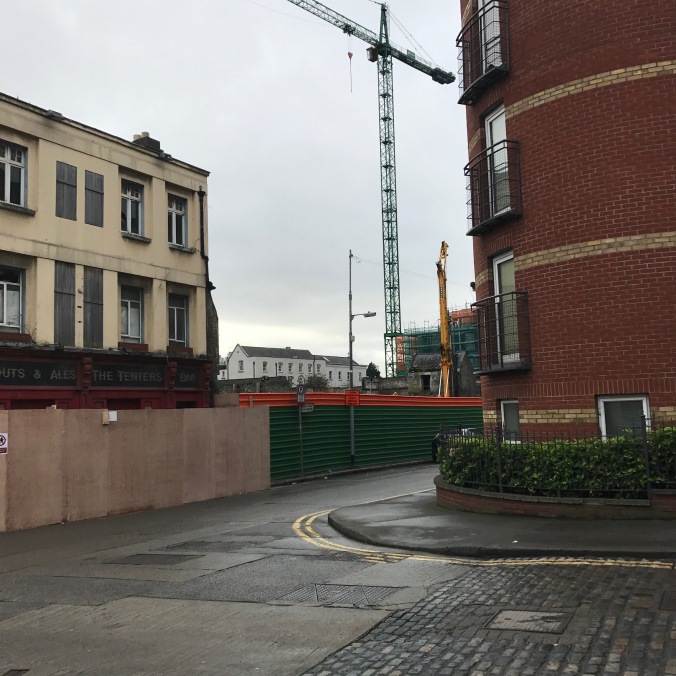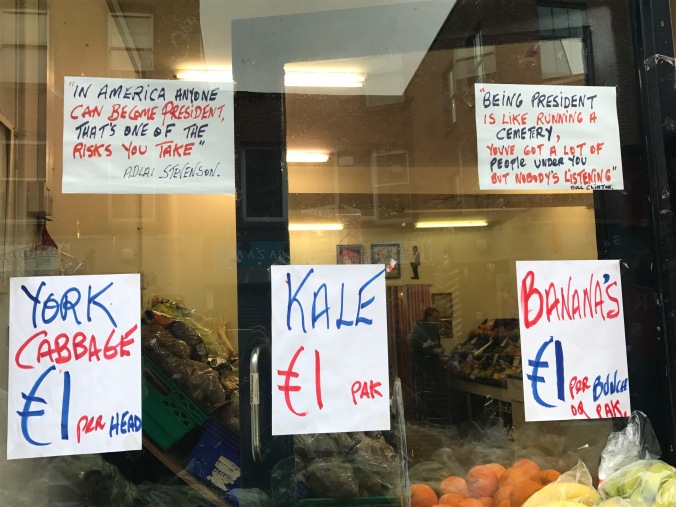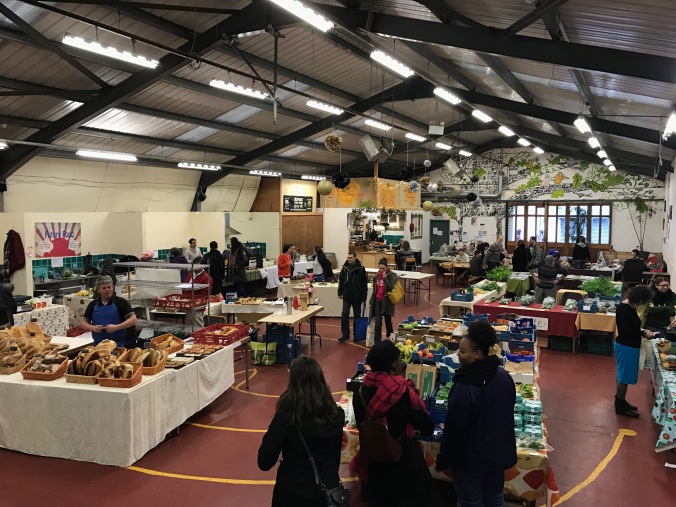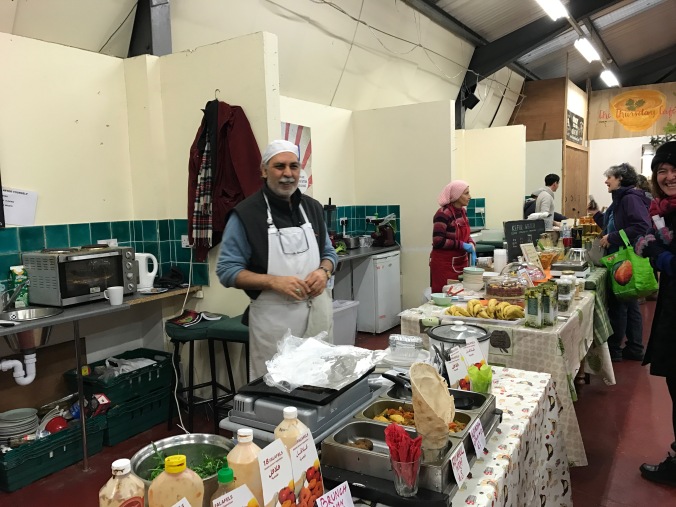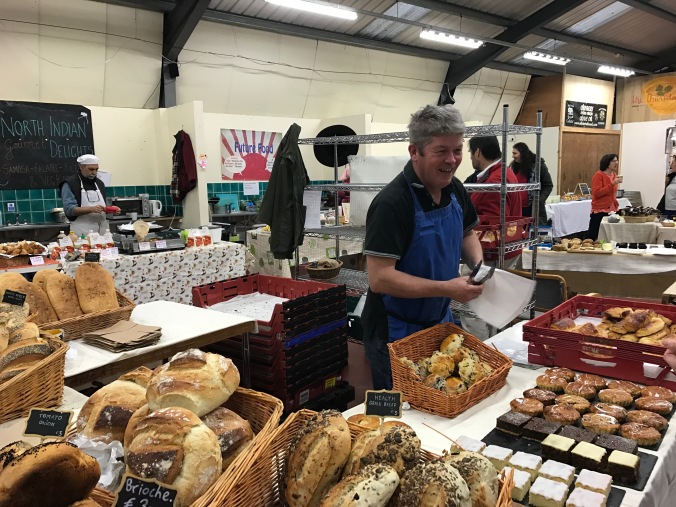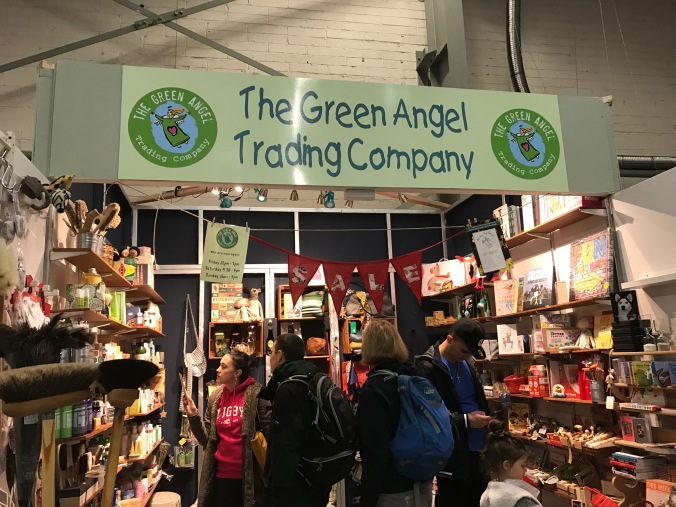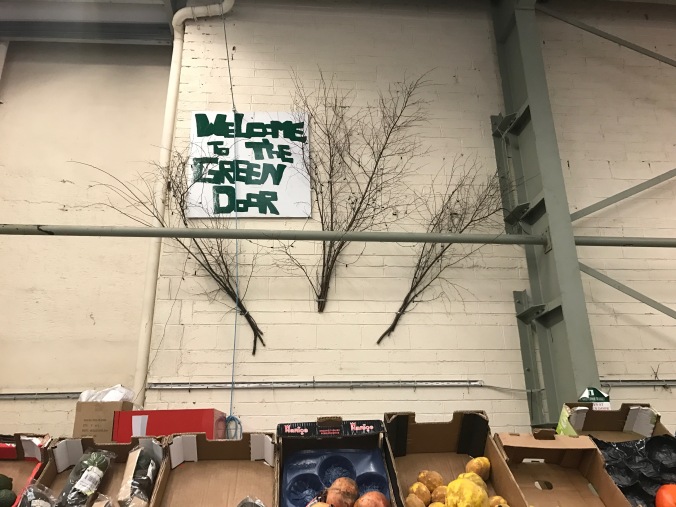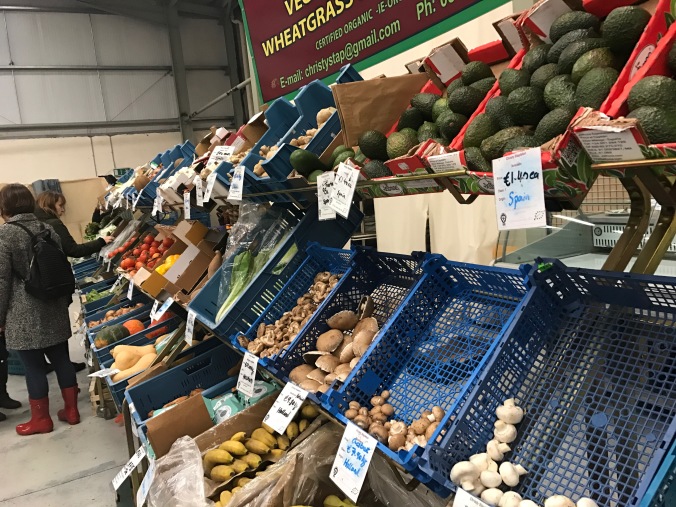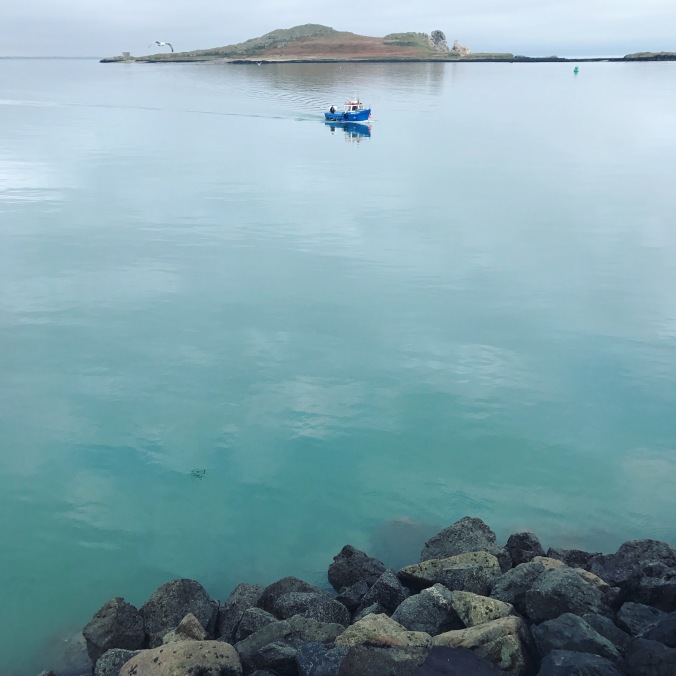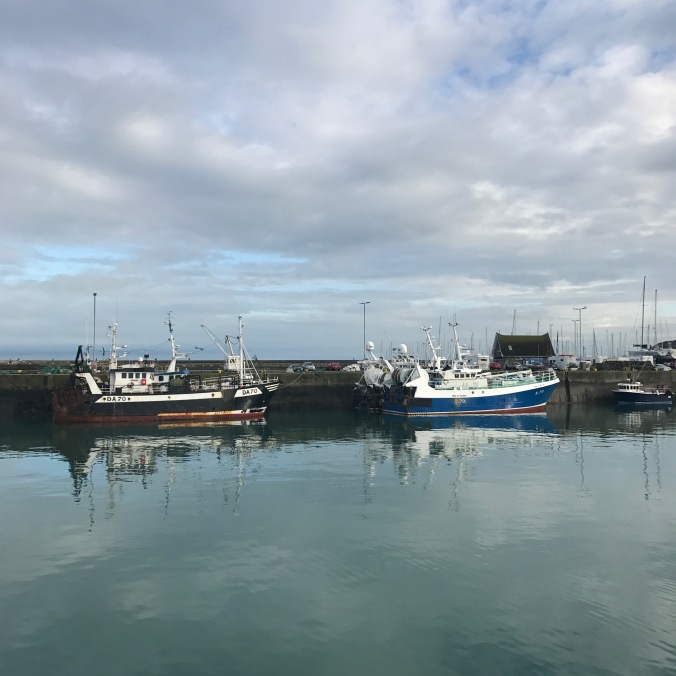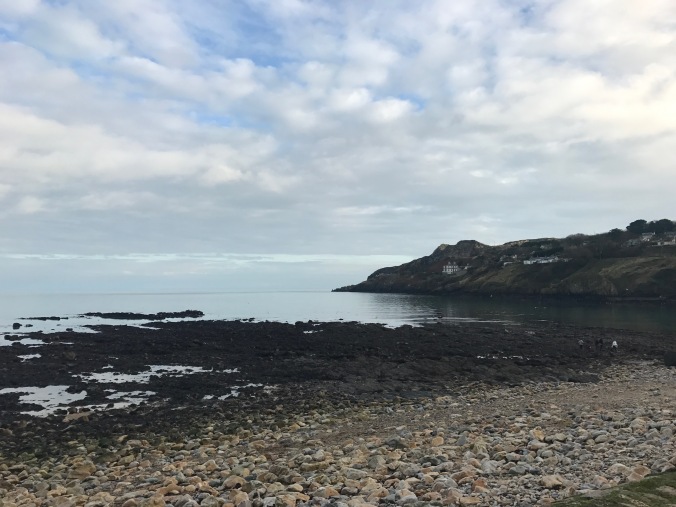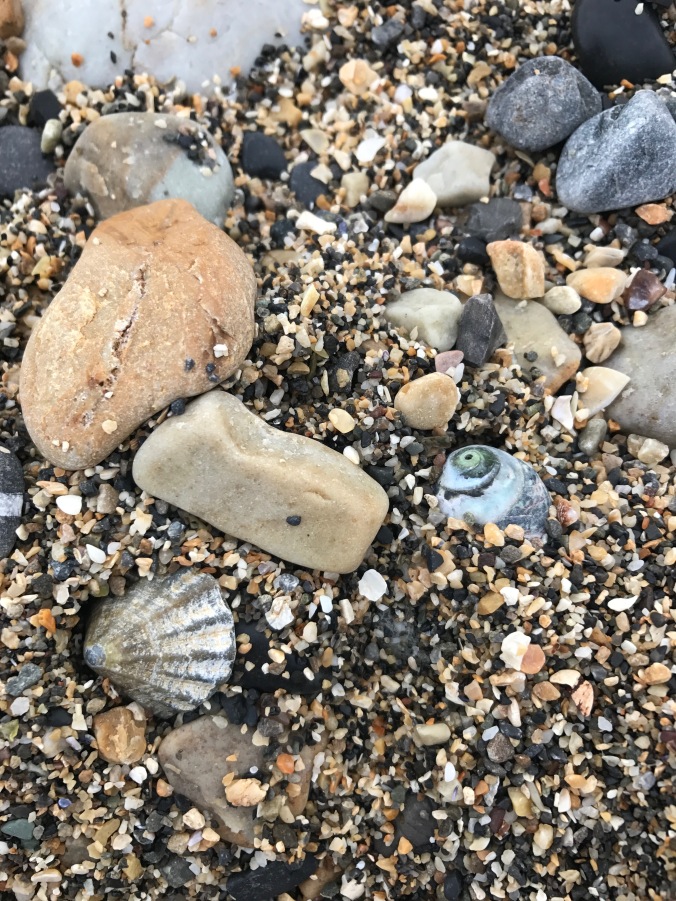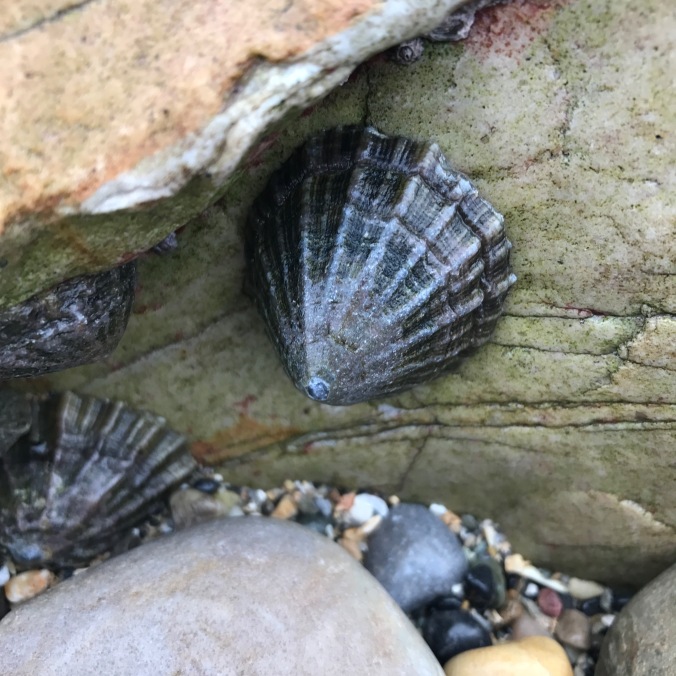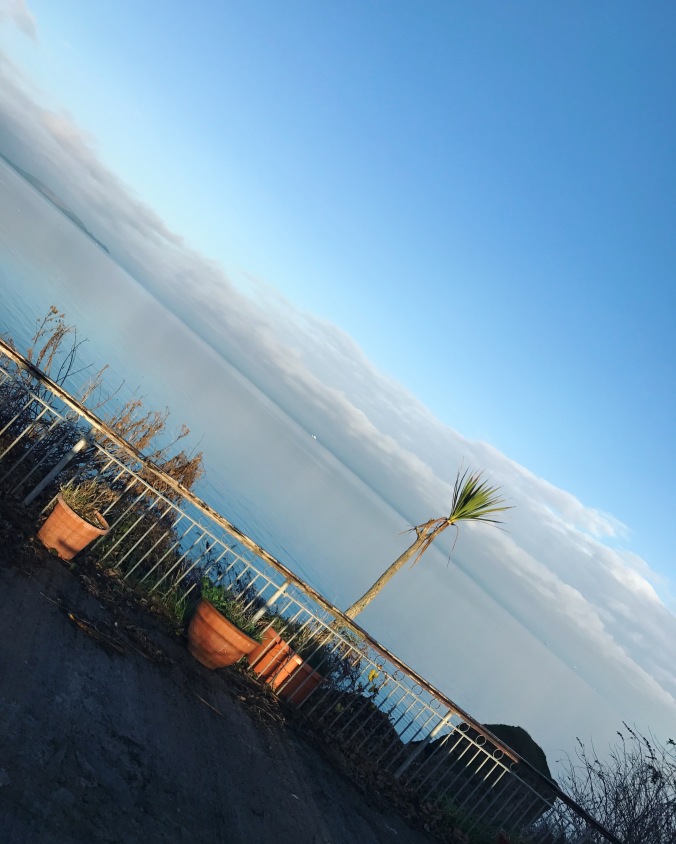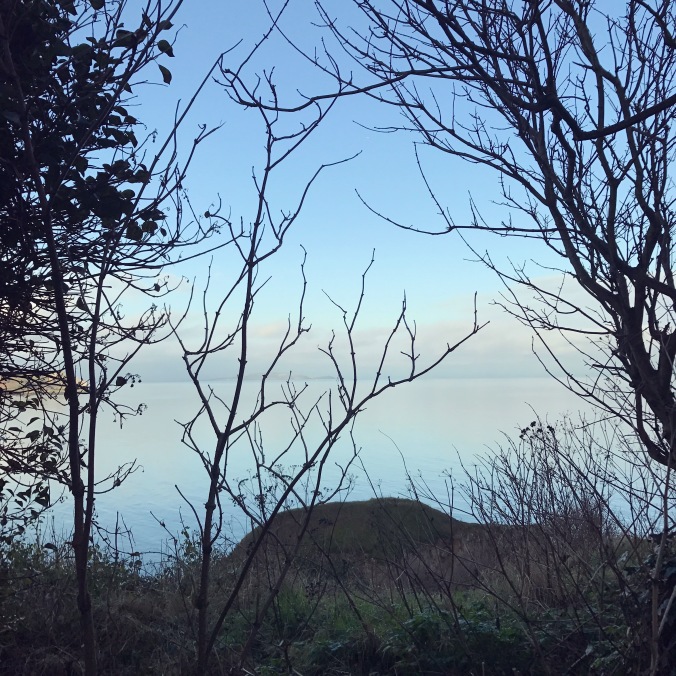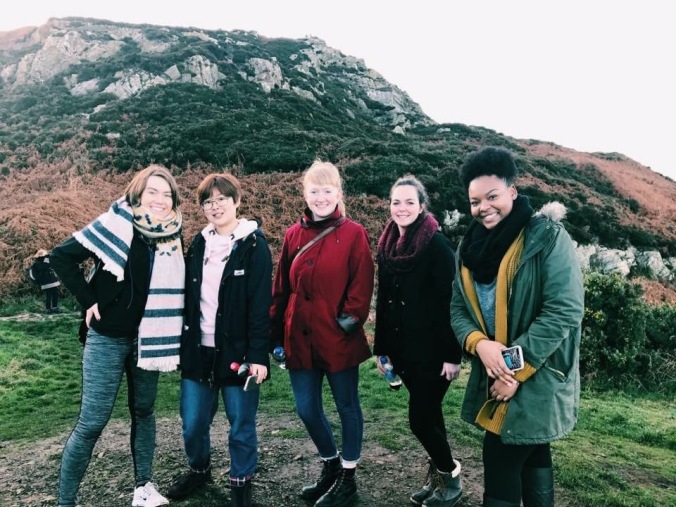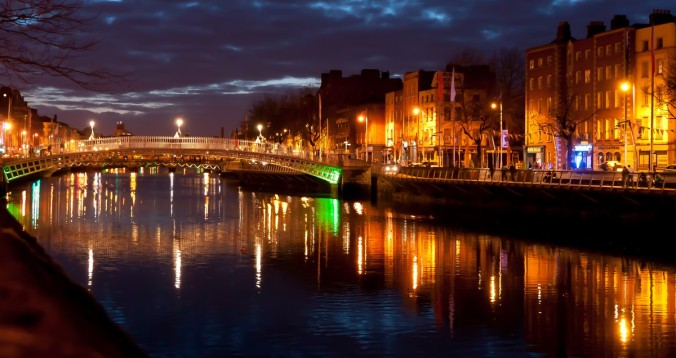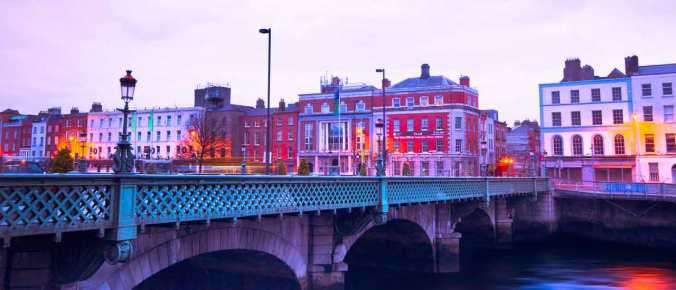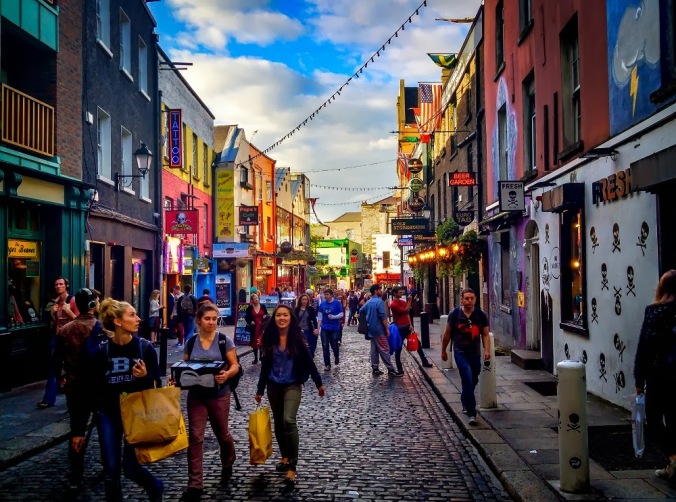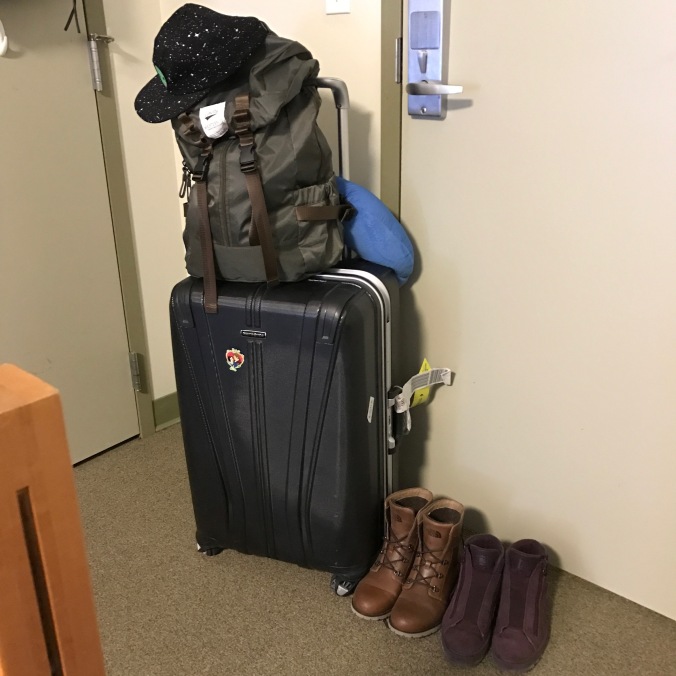On an island with one seaway separating the Irish from Brexit, the new European Union agenda for the member states, and another ocean separating them from a newly elected ruler in the United States, Ireland’s finest are brazen in their beliefs for a hopeful future.
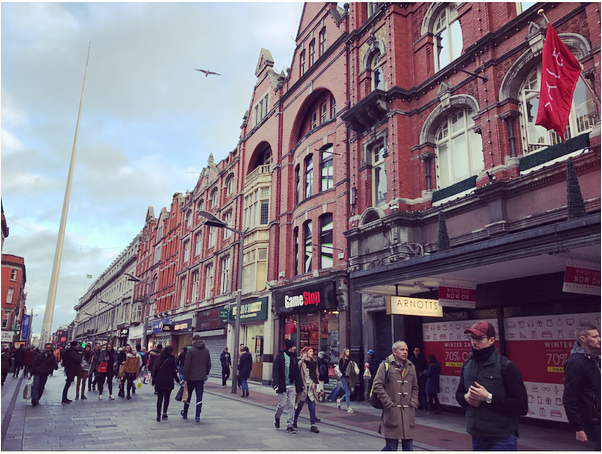
Photo by Xueer Zhang/Mary Street is a centre of commerce in Dublin.
“We are a more open society at this moment in time than ever we have been in our history,” said Jack Roche, 73, a locally renowned storeowner in the capital city of Dublin. “We were already called ‘insular type of people’ for years and years, but now we are much more open because of the influx of everybody from different countries. We embrace it better.”
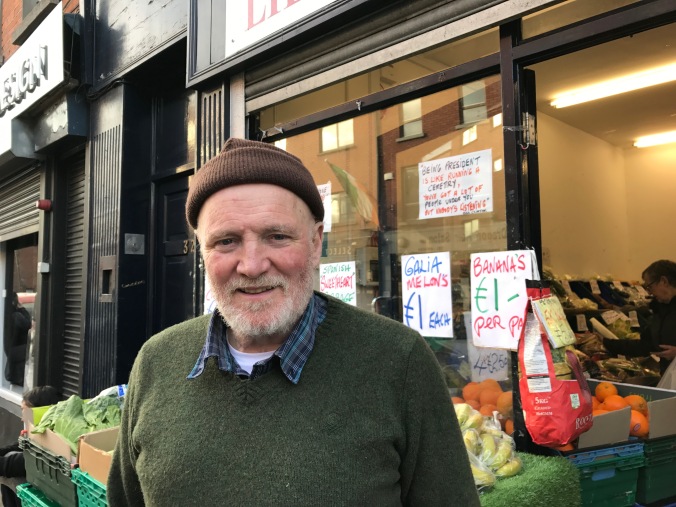
Photo by Xueer Zhang /Jack Roche has been a focal point in the heart of Dublin for more than 70 years and has his own ideas about pluralism.
Although Britain voted to separate themselves from the rest of the EU in 2016, there is little worry across Ireland about its future. From the Irish perspective, a closer connection with EU will bring more benefits to the country than that with England. Many Ireland natives say their country is now more diverse than it ever has been, and separate themselves from the immigration issues that many Americans are now dealing with under the reign of President Donald Trump. They are proud of their recent achievements, including legalizing gay marriage just two years ago, and its growing pluralism in a more divisive world.
Three very different Irishmen talk about their thoughts on how the Irish fit into the big picture of pluralism.
Jack Roche has been a focal point in The Liberties community in the heart of Dublin for more than 70 years. Everyone in the community knows the owner of Liberties Green Grocery on Meath Street since he was a teenager growing up in a very different Dublin. But his customers have changed over the years, just as his neighbors.
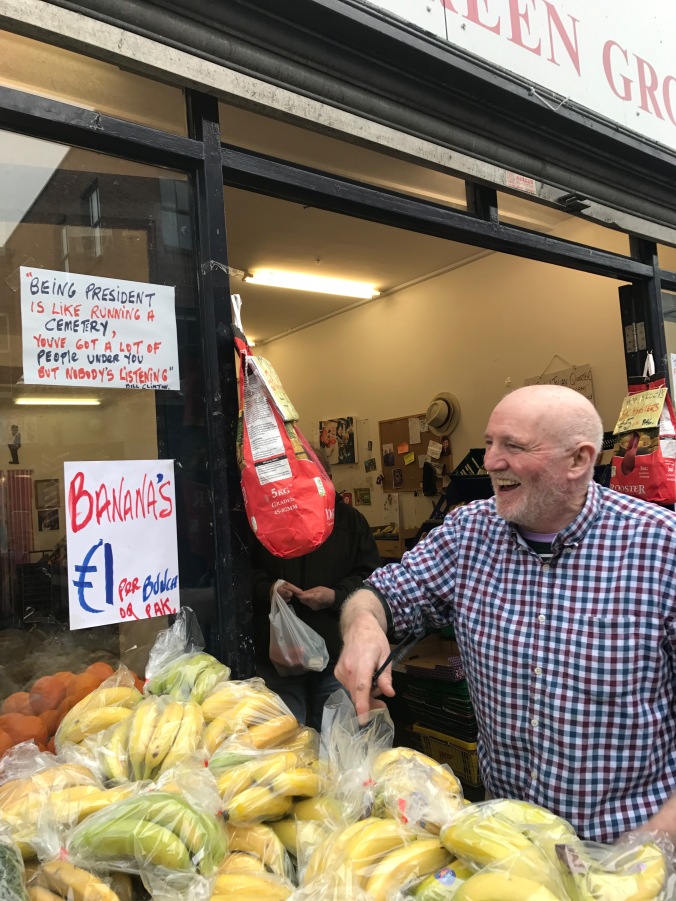
Photo by Xueer Zhang/Jack Roche proudly introduced his political commentary on his store window in Dublin.
As Ireland’s capital city, Dublin has the most diverse demographics. According to 2017 World Population Review, there are more than 250,000 foreign-born people living in Dublin in 2011, a 51 percent growth from 2002, comprised of 23 percent of its residents from the United States, 13.5 percent from Poland and four percent from Lithuania. For the first time since 2009, the number of immigrants entering Ireland outnumbered those leaving the Ireland, according to the Central Statistics Office in Cork.
“The Irish culture is a culture defined by people from all over the world,” said Roche, explaining his understanding of Irish pluralism.
The Liberties Green Grocery has been standing in the community for more than 60 years. The store has received much attention of late from its customers and local press because of the U.S. President Donald Trump satire Roche put on the store window.
The hand-printed signs read:
“In America, anyone can become president. That’s one of the risks you take.”
– Adlai Stevenson
“Being president is like running a cemetery. You’ve got a lot of people under you but nobody’s listening.”
– Bill Clinton
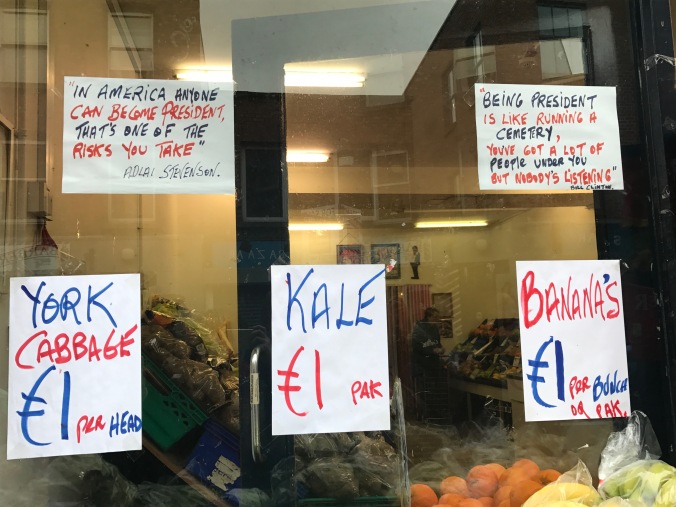
Photo by Xueer Zhang/”In America, anyone can become president. That’s one of the risks you take.” – Adlai Stevenson “Being president is like running a cemetery. You’ve got a lot of people under you but nobody’s listening.” – Bill Clinton
The signs, ironically placed above the enlarged price tags for bananas and melons, was part of Roche’s proud “store culture.” He usually changes the signs, either funny or philosophical, twice a week, he said, but the current ones, which are unconventionally about politics, were left unchanged since Christmas.
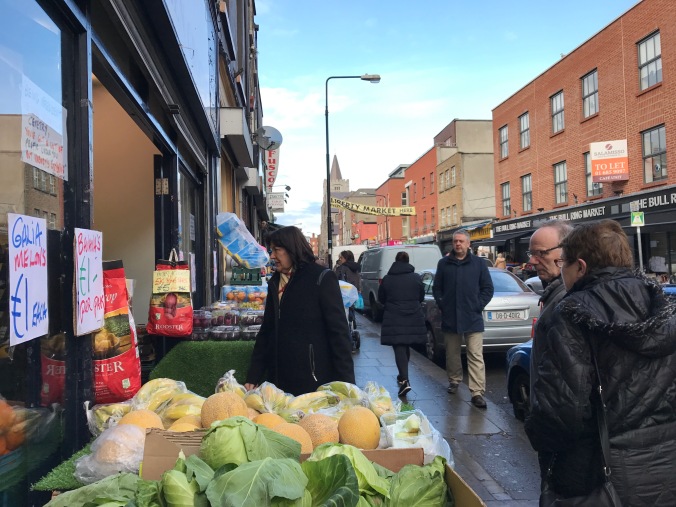
Photo by Xueer Zhang/ Passersby stopped to read the political commentary on Jack Roche’s store window in Dublin.
“It’s a bad faith of capitalism,” he said, referring to the U.S. election result. “It’s possibly the worst decision America has ever made.”
Roche said it could mean the biggest tragedy for not only immigrants, but also independent farmers who specialize in agricultural exports.
“They are going to tax them more, making America more insular,” he said. “That is the worst they could possibly do. It won’t win.”
He said he wouldn’t be surprised if Donald Trump was “taken out” or assassinated during his term like former President John F. Kennedy.
Besides his strong opposition to Trump’s policies, Roche said he also wanted to pass on an important message to whoever walked by the window.
“I put up these signs because everybody is welcome, black, white, small, big,” Roche said. “All the tourists took pictures of it. Irish people also came. And my friends would come and say, ‘Hey Jack, you haven’t changed them for four weeks!’ ”
Roche said neither Trump nor Brexit would be likely to stir up anti-immigration sentiments in his country unlike in the rest of Europe.
“When Irish came to England in the 1940s, they had a hard time,” Roche said, citing the country’s emigration wave back to England to escape the country’s poor economic condition following the establishment of the Irish Free State.
“They know how it felt,” Roche said.
“I wouldn’t worry about Brexit,” Roche added. “What Ireland has to do is to steer to the middle of the road. We should course up to Europe more than we should course up to the United Kingdom, although we still don’t want to lose it either.”
Ken Muophy is a Dubliner who has roots in both the United States and Canada. He describes himself as an immigrant – one of the many who could be impacted by U.S. President Donald Trump’s latest executive order.
“My wife and I are probably the only people I know in my family and her family who are supposed to be going home this Christmas,” Muophy said. “Everyone else is in the States or Canada. So we ARE immigrants.”
He added he didn’t think Trump’s presidency was going to affect the country’s pluralist environment because of Ireland’s long history with immigration.
According to World Population Review, 82.7 percent of the Dublin population identifies themselves as Irish origins, while 2.9 percent are Asian, 2.9 percent are Polish, 1.8 percent are from the EU, 1.7 percent from the UK, 1.6 percent are African, 0.8 percent are Lithuanian and 0.3 percent are American.
Muophy said Ireland’s level of openness had been growing over recent years and would most likely keep going up.
“Essentially, I suppose, being gay isn’t an issue anymore,” he explained. “Abortion still isn’t allowed now but that is an issue that’s being forced.”
He thought this positive trend was largely due to the collapse of Irish Catholic Church. “There is a big vacuum, which is the Catholic Church is gone,” he said. “We are pushing for change, instead of depending on the Church, or depending on the EU.”
“I think all the European countries have very strong self-expressions: what it is like to be a French man or someone who lives in Norway,” he said, explaining the distinctive factors that caused the country to remain pro-immigration. “But Ireland is, because of its colonial history, developed a false sense of what they were. And that’s gone now. That’s why people are more international-looking.”
He added he doesn’t think Brexit will have an impact on the Irish either.
“I wouldn’t say Brexit is negative,” said Muophy, who goes to Dublin Food Co-op for weekly grocery shopping. “I think we should look away from England and look toward the EU.”
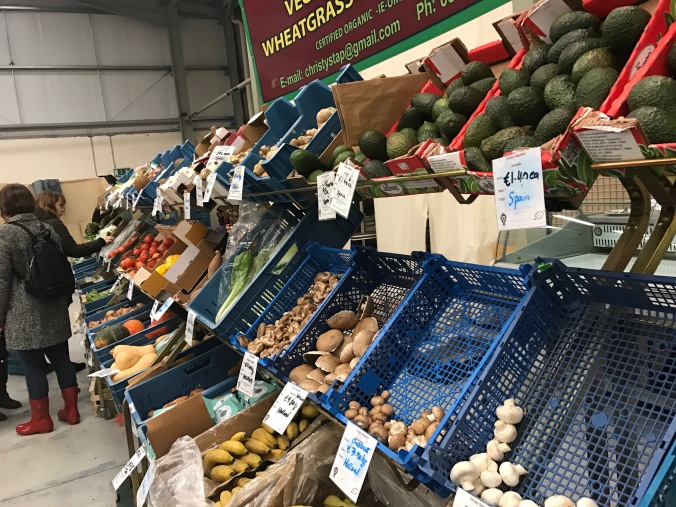
Photo by Xueer Zhang/Fruits and vegetables line the Dublin Food Co-op.
Nicolas Hu came to Dublin from mainland China 11 years ago. Now, he and his wife run a ramen restaurant called Yumo at Aungier Street. Although it’s only been there for one year, the restaurant was packed with customers at dinner time.
Moving to Dublin in 2006 – two years before the Great Recession, Hu witnessed great changes in this country during the last decade.
“Before 2008, the Irish government planned to build a Chinatown around Parnell Square where a lot of Chinese immigrants lived,” he said. “But due to the economic crisis, the community declined and the plan was aborted.”
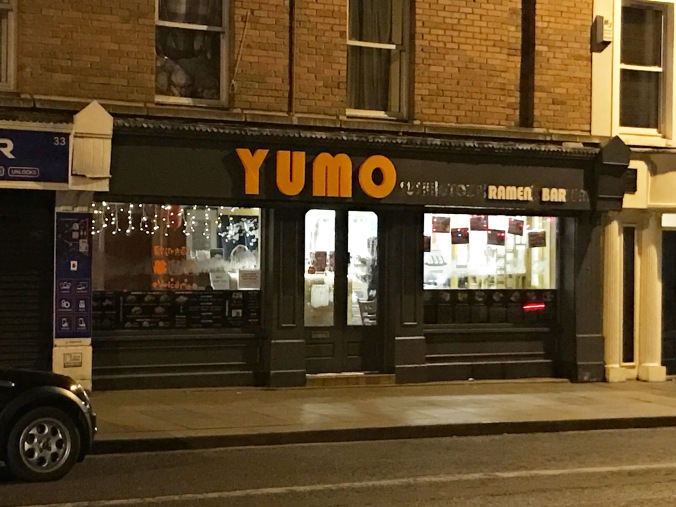
Photo by Xueer Zhang/Yumo Ramen Bar on Aungier Street in Dublin is owned by Nicolas Hu.
Despite the difficulty, he said, it clearly felt that Chinese immigrants’ situation had been improving since then.
“Ireland as a nation has been thinking about ways to turn its economy on after the financial crisis,” Hu said. “And it’s getting better.”
Hu said there was obvious economic growth throughout 2016 as Ireland’s consumption was boosting, especially over last Christmas.
He said the quickly recovering economy enabled many Asian immigrants to move back to Parnell and had made it easier for the immigration communities to flourish.
“Ireland’s tourist industry growth has always been steady,” Hu said. “People come here and fall in love with this city. That’s what makes Ireland great. It’s small but it’s believed to be one of the best places to travel or live because of its beautiful natural and social environments.”
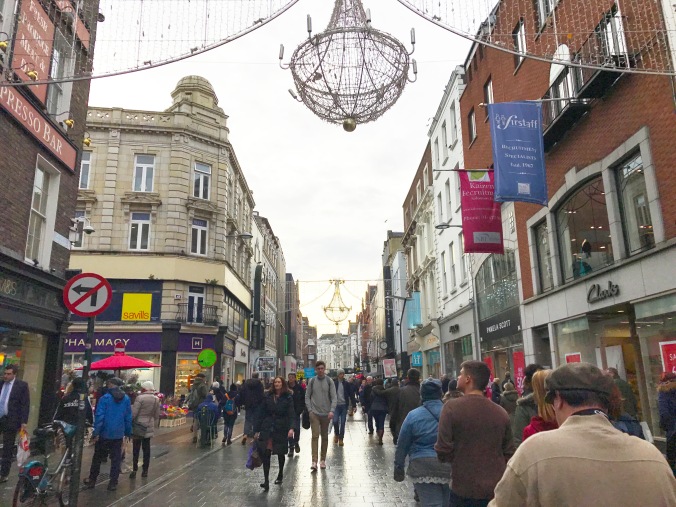
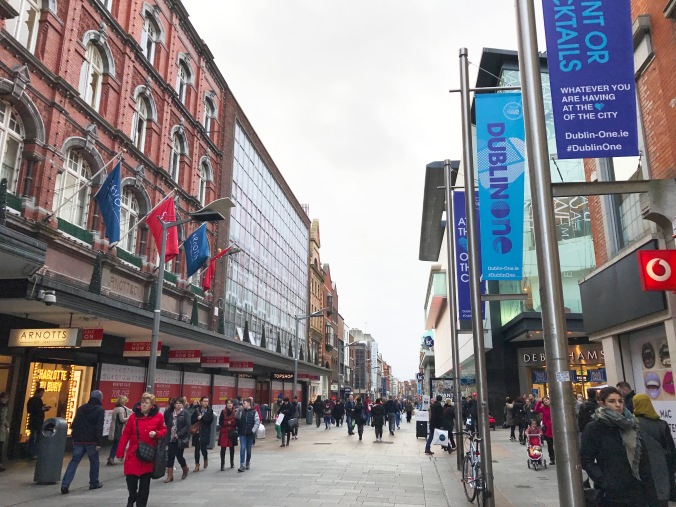
Photo by Xueer Zhang/ Malls and retail stores on Mary Street in Dublin are popular tourist destination.
According to the UN World Urbanization Prospects, the population of the Dublin Region will reach 2.1 million by 2020 and pass five million by 2031, with most people living in the greater Dublin area, Kildare, Meath and Wicklow.
“From what I see, Ireland’s attitude towards immigration is becoming friendlier,” said the 39-year-old restaurant owner, whose employees are mostly young Asian immigrants, including Chinese, Korean and Japanese.
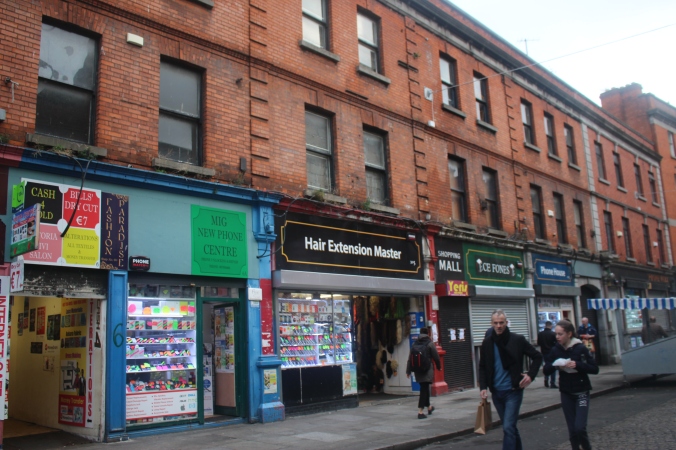
Photo by Xueer Zhang/ Immigration communities near Parnell Square plays an important role in Ireland’s economy.
In general, Irish people believe immigration is a positive force,” Hu said. “That’s why, I think, we are less affected by the rising nationalism across Europe.”
He said Ireland’s unique history could be the main reason why most locals strongly resisted Donald Trump and the less immigrant-friendly trend.
“Although Ireland is part of the Western Europe, it used to be the least developed country in the area,” Hu said. “There was little attempt from Britain to industrialize the nation before its independence. Instead, it’s used as an agricultural base.”
“It’s not that open until the 1970s, when the country went through a set of liberal reforms,” Hu said. “It obtained the EU privilege to keep the lowest corporate tax. That’s how it was able to attract a number of multi-nationals, including Google, IBM, Microsoft and Facebook. They preferred to lay their headquarters in Ireland more than any other places. This pushed Ireland’s economy to a new height.”
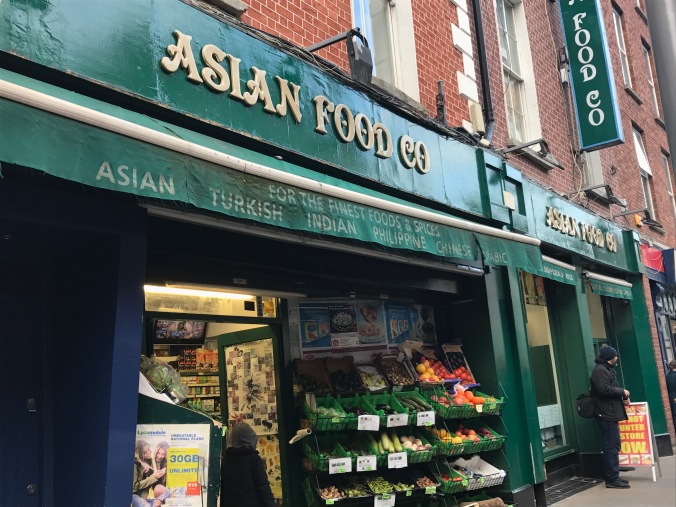
Photo by Xueer Zhang/Asian Food Co. on Mary Street in Dublin is popular among new Asian Dubliners.
The nation now has about four million people,” Hu said. “These giants have created a lot of jobs and opportunities.”
“As for Irish citizens, they saw how they’d been benefited from industrialization and commercialization over the recent decades and thus favor a more open, liberal, outgoing system,” Hu added. “That’s why the majority believe immigration is a good thing.”
When asked whether he was worried about Brexit, Hu said that wasn’t the biggest problem the country is facing right now.
“Our biggest concern is the United States,” Hu said, citing more than 85 percent of Ireland’s foreign investments come from the United States due to lower tax rates, common ancestry and language convenience.
“Trump said he’s moving American companies back to where it comes from,” he said. “If he did so, it’d be a huge blow to Ireland. That’s why people are more worried about Trump than about Brexit.”
However, Hu added, that doesn’t mean those companies would follow what Trump says.
“After all, Trump is not the sole commander,” he said. “And it’s all about doing business. They can’t just let go of the European market.”
“It’s more like a catchword than a concrete action,” said Hu. “I don’t think there’s going to be any big change.”
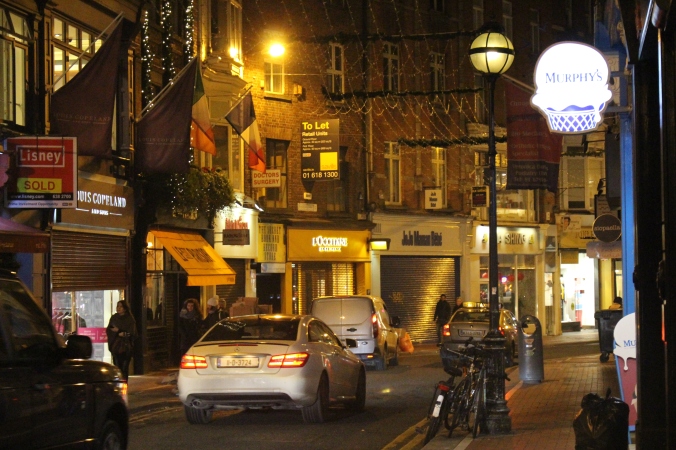
Photo by Xueer Zhang/Dublin still looks vibrant at 10 pm.
